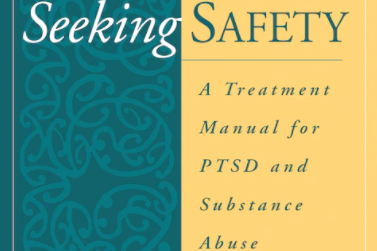On October 6 and 13, East Toronto Health Partners (ETHP), the Ontario Health Team (OHT) serving East Toronto, brought together more than 130 people from a dozen of its member organizations to participate in two full days of training on the clinical implementation of “Seeking Safety”. This knowledge- sharing opportunity built on previous cross OHT initiatives that brought organizations together to address substance use and health.
Seeking Safety helps clients with post-traumatic stress disorder (PTSD) and/or substance use issues to stay safe. By the end of the training, participating providers can implement the approach in their setting if they choose to.
The model equips care providers with the skills needed to help clients address trauma and addiction without requiring them to recount or relive painful memories of their trauma, which is common in other trauma-focused therapies. It is complementary to the harm reduction model in that it tries to offer skills and focuses on the present and protection.
Up to 25 topics can be conducted as part of Seeking Safety training, including a range of approaches to promote a positive well-being for clients on topics like cognitive, behavioral, interpersonal and case management. Examples of safe coping skills relevant to trauma and/or addiction are “Asking for Help”, “Creating Meaning”, “Compassion” and “Healing from Anger”. Later on in the client journey, Seeking Safety addresses topics like mourning and reconnecting with community.
Based on feedback, 85 per cent of staff from ETHP member organizations who participated in the Seeking Safety training felt the experience was valuable to their work. Participants expressed a desire for additional training in order to focus more on implementation techniques.
“As an Ontario Health Team, we are excited about opportunities to bring our members together and provide resources that will benefit and strengthen organizations and the health of East Toronto,” says Raj Sohi, Chair of ETHP’s Substance Use and Mental Health Working Group. “More than ever, people are struggling with mental health and addictions and we will continue to work on building the capacity of our staff and organizations to assist in tackling these complex issues.”

